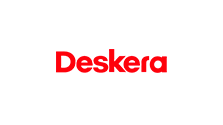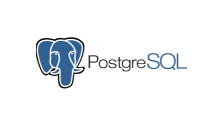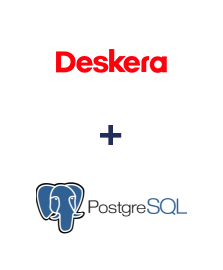- First, you need to register in ApiX-Drive
- Choose what data to transfer from Deskera CRM to PostgreSQL
- Turn on auto-update
- Now the data will be automatically transferred from Deskera CRM to PostgreSQL
Integration Deskera CRM + PostgreSQL
Connect Deskera CRM and PostgreSQL via web interface in 5 minutes, without programmers and special knowledge.


Create integration of Deskera CRM and PostgreSQL yourself, without programmers
Other available integrations
Deskera CRM (162 available connectors)
PostgreSQL (257 available connectors)
Without restrictions
Get a 14-day
trial access
trial access
Automation capabilities of
Deskera CRM and PostgreSQL
Configure the rules once, according to which the systems will work.
Transmit data at specified intervals from Deskera CRM to PostgreSQL.
Transmit data at specified intervals from Deskera CRM to PostgreSQL.

Data source: Deskera CRM, available actions:
- Action
Data receiver: PostgreSQL, available actions:
- Add ROW
F.A.Q. on integration of Deskera CRM and PostgreSQL
How is integration of Deskera CRM and PostgreSQL carried out?
How long does the integration take?
Depending on the system you want to integrate, the setup time may vary from 5 to 30 minutes. On average, it takes 10-15 minutes.
How much does it cost to integrate Deskera CRM with PostgreSQL?
You don't need to pay for the integration, as all the functionality is available at all plans. You pay only for the amount of data transferred from one of your systems to another through our service. If you have a small amount of data per month, you can use a free plan and switch to a paid one, if necessary. More information about plans .
How many integrations are available in Apix-Drive?
At the moment, we have 288+ integrations beside Deskera CRM and PostgreSQL
Information about Deskera CRM
Information about PostgreSQL
The PostgreSQL database management system offers users quite extensive functionality. For example, functions in it are displayed as blocks of code with server execution. Another element of the system's functionality is triggers, presented as functions called by DML operations. The interface of this DBMS supports several types of indexes (GIN, GiST, Bloom, BRIN, hash and B-tree), in addition, users have the ability to create and add new types themselves. PostgreSQL has multiple versions available; the system also supports more than two dozen data types and the addition of a number of custom objects. More
Are you the owner or developer of a service
that we don’t have?
that we don’t have?
Find out on what conditions we can implement the integration
with your service on this page
with your service on this page